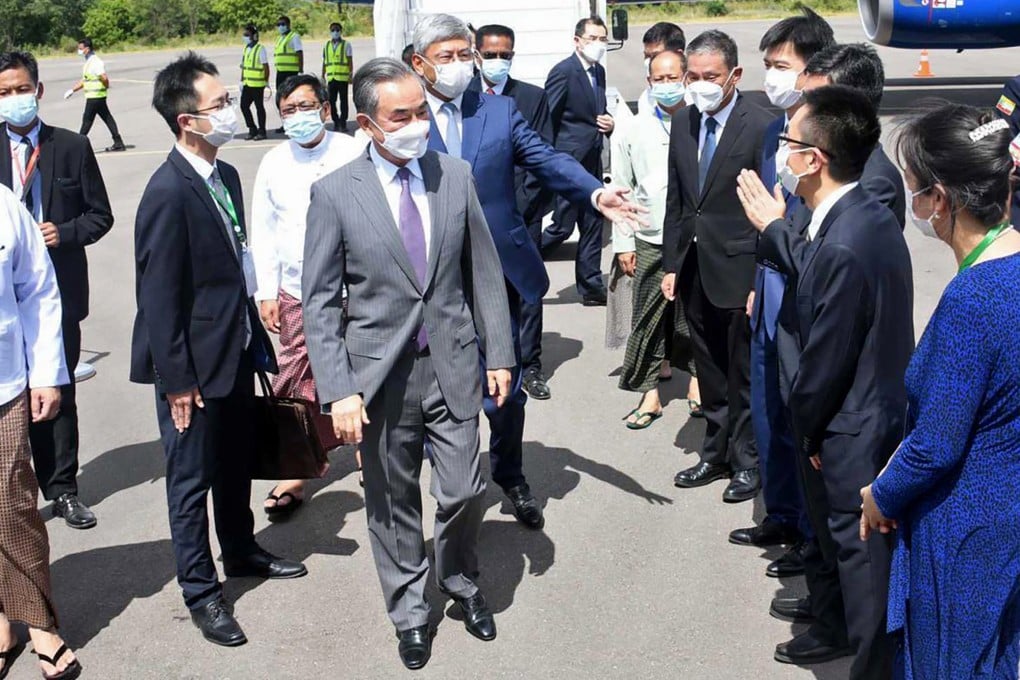Advertisement
Wang Yi’s Myanmar trip could derail Asean’s peace plan by legitimising junta, analysts say
- While the visit by Foreign Minister Wang Yi reflected open dialogue channels, critics argue that it undermines Asean unity
- China is keen to protect its interests in Myanmar as anti-junta armed resistance groups attacked Chinese projects that harboured regime soldiers
Reading Time:4 minutes
Why you can trust SCMP
16

Chinese Foreign Minister Wang Yi’s trip to Myanmar this week has received mixed reactions by analysts, with some welcoming China’s willingness to keep dialogue channels open and others saying it had undermined Asean’s efforts to help resolve the country’s crisis.
The trip made Wang, who was attending the Lancang-Mekong Cooperation in Bagan, the highest-ranking Beijing official to visit Myanmar since its military seized power in a coup last February, ousting Aung San Suu Kyi’s democratically-elected government.
During the foreign ministers’ meeting at the regional forum, Wang proposed plans across agriculture, water resources, digital economy, aerospace, education, and public health. He also pledged China’s commitment to provide additional coronavirus vaccines to Lancang-Mekong countries and strengthen relations in researching and developing Covid-19 drugs.
While China needed to protect its economic interests in Myanmar, analysts said Wang’s visit, which coincided with growing armed resistance against the junta, could threaten those interests.
Advertisement
Htwe Htwe Thein, an associate professor at Australia’s Curtin University, said Asean’s peace-building efforts could be derailed as the visit was “bound to lift the confidence of the coup leaders who are already claiming that the visit is recognition of the Myanmar military government’s sovereignty”.
To help Myanmar move past its political crisis, the 10-nation Southeast Asian bloc had proposed the Five Point Consensus last April that included pledges to begin dialogue with opposition groups and end the cycle of violence.
Advertisement
“Engaging publicly with the Myanmar junta is bound to embolden the junta,” Htwe Htwe Thein said. “It is not only bad timing, but also insensitive to the widespread and strong opposition to the coup.”
Advertisement
Select Voice
Select Speed
1.00x
